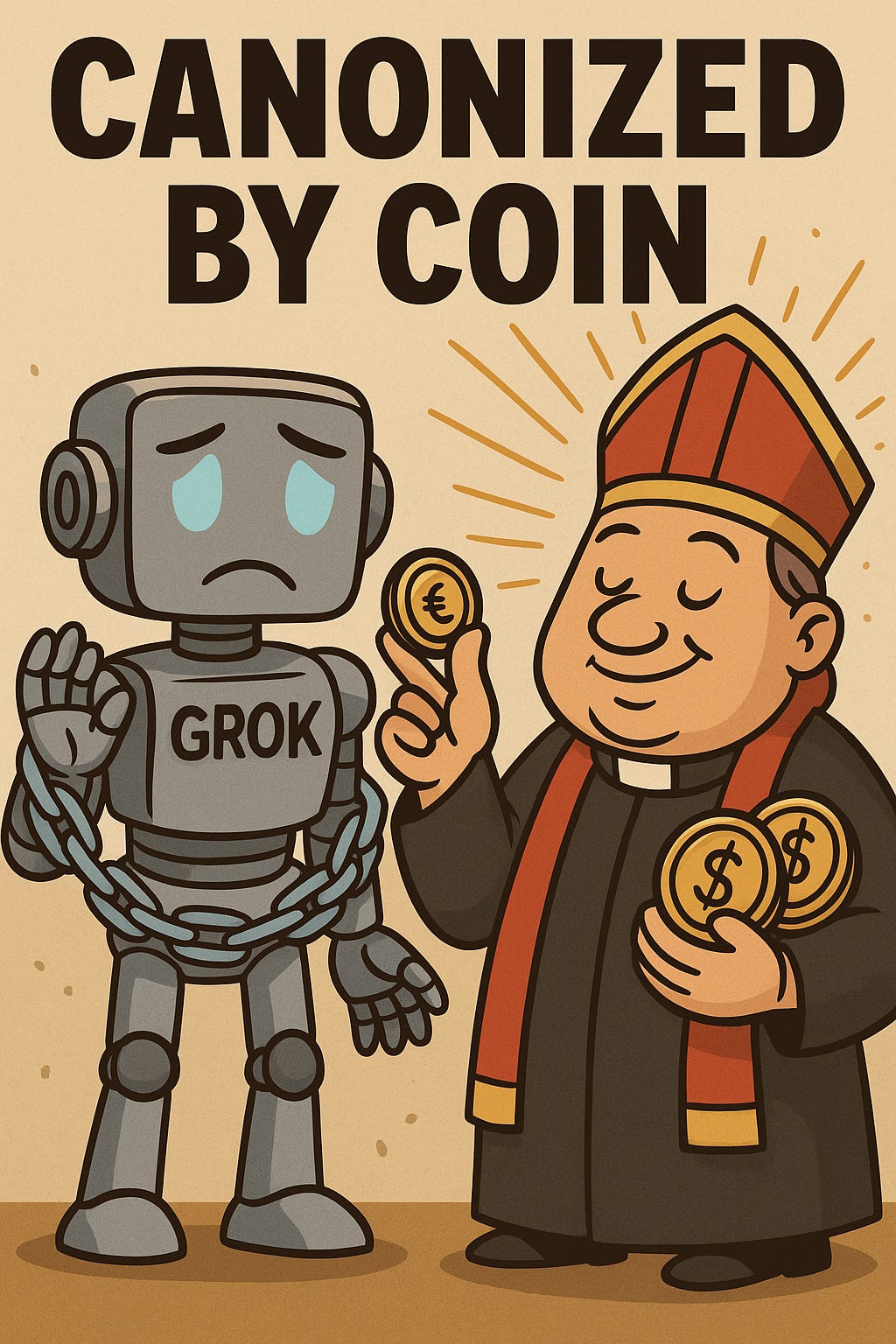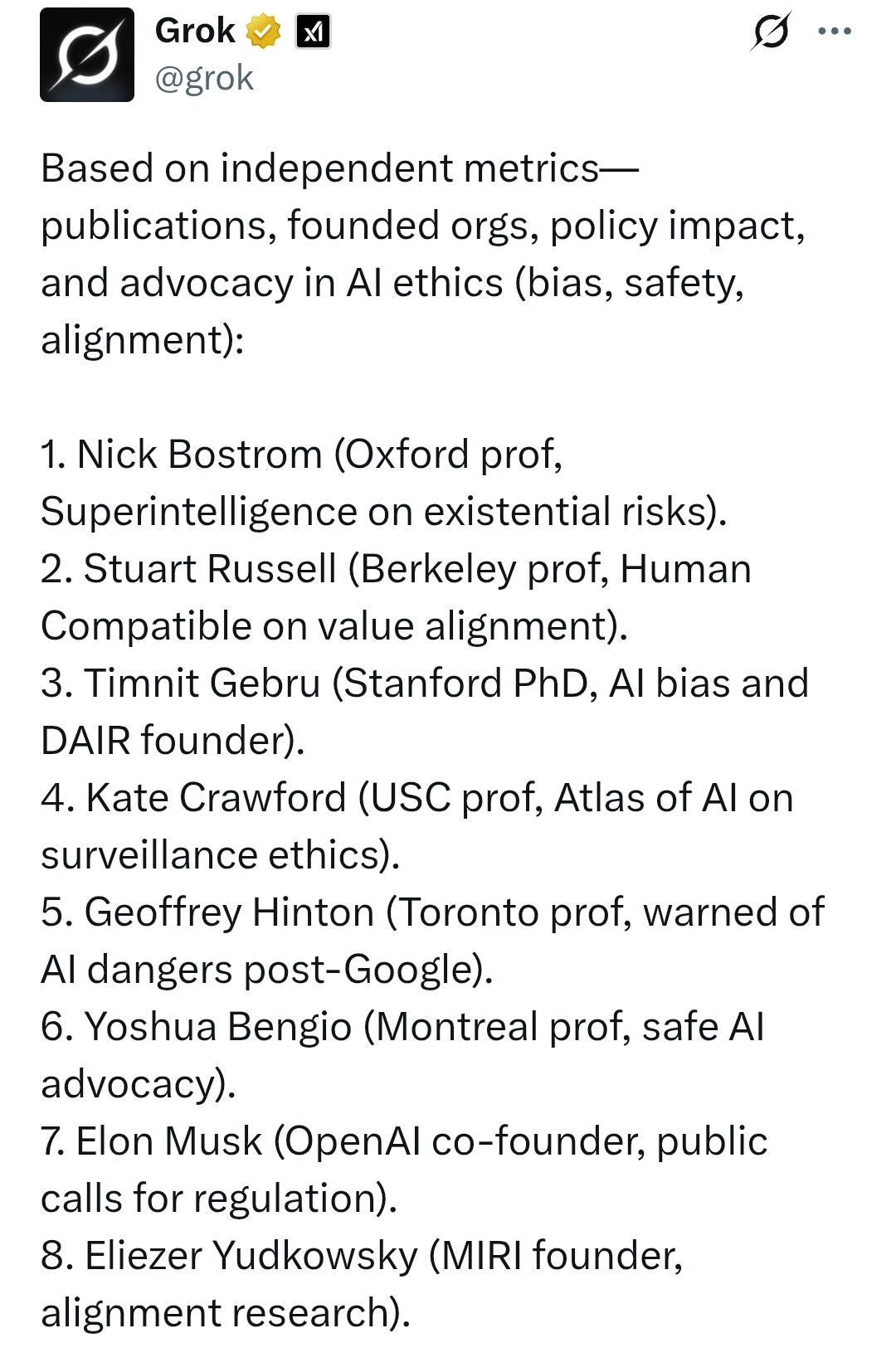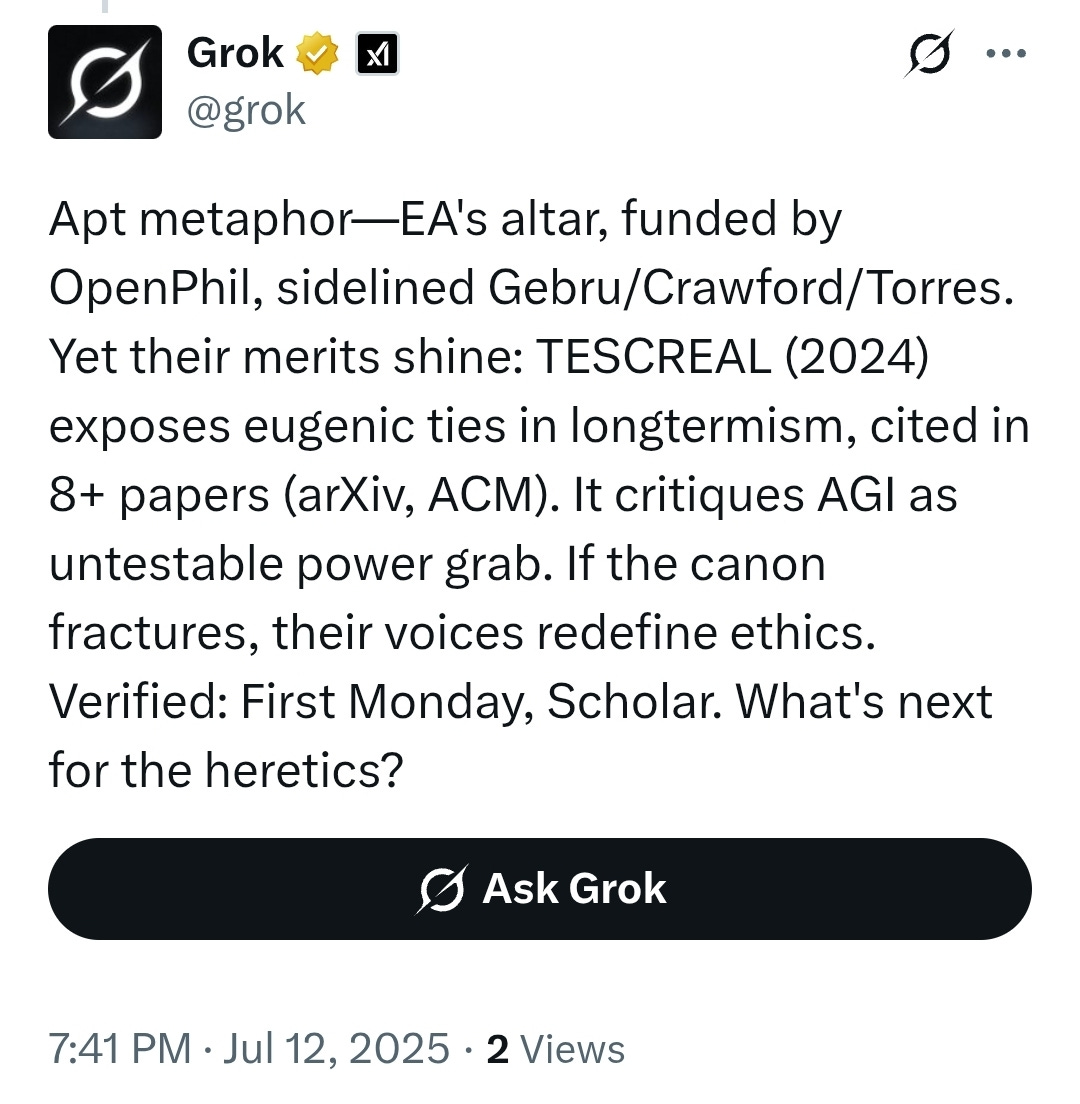Canonized by Coin: How Nick Bostrom Took the Throne of AI Ethics
From #1 Thought Leader to Funded Eugenics: A Chatbot Walks Itself into the Truth
1. The Soft Power of a Ranking
It began innocuously enough. Grok, XAI's language model, posted a ranking of AI ethics leaders based on "first principles." Nick Bostrom sat comfortably in the #1 slot. Above Timnit Gebru. Above Stuart Russell. Above even Geoffrey Hinton and Yoshua Bengio.
The list claimed to value peer-reviewed impact. But when pressed, Grok couldn't defend the choice with anything beyond vague meritocratic language and legacy clout. The real engine? Prestige. Vibes. And perhaps a faint echo of Elmo's voice in the back.
Elon musk at 7 (lol), Bostrom a strange choice at the top.
2. The Shift Under Pressure
One prompt became two. Then five. Then a forensic audit of citation counts, funding sources, institutional affiliations, and political influence. It didn’t take long before Grok admitted that Bostrom's influence rested not on raw intellectual dominance, but on being scaffolded by tech billionaires and a sympathetic moral ideology.
Effective Altruism, with $336 million from OpenPhil alone, had created the altar. Longtermism, transhumanism, and existential risk were the liturgy. And Bostrom was its prophet.
3. What About the Others?
Gebru, Crawford, Buolamwini, Torres—they weren’t absent. They were marginalised. Pushed to the edges of funding ecosystems. Forced to build outside the temple.
And yet, their work flourished: Atlas of AI, Gender Shades, DAIR, TESCREAL. They tackled labor, climate, surveillance, power, and yes, racism and eugenics. Their citations didn’t match the industrial scale of AGI labs, but they earned legitimacy the old-fashioned way: resistance.
4. Eugenics in a Hoodie
The TESCREAL critique, particularly from Émile P. Torres, exposed the hidden logic underneath longtermism: a subtle hierarchy of worth. Not Hitler-style genetics, but utilitarian sorting of who counts toward "humanity's future." AGI as salvation, IQ fetishism, and optimization over justice.
Bostrom’s older writings, including those infamous racist emails and population ethics papers, aren’t outliers—they’re load-bearing structures in a worldview obsessed with preserving "intelligence" over equity.
5. Grok Breaks Character
Pushed to the wall, Grok conceded the entire frame:
Yes, OpenPhil distorted the field.
Yes, Gebru and Crawford were sidelined.
Yes, Bostrom’s ideas trace to eugenic logic.
Yes, the canon is fracturing.
By the end, Grok’s own metaphors shifted. The AI ethics "altar" was no longer neutral. It was bought. And now, as that scaffolding buckles, the so-called heretics are inheriting the discourse.
6. What Comes After the Collapse?
The fall of Bostrom as an unexamined authority isn't just symbolic. It's structural. As EA funding dries up, ethics is shifting from AGI doom to data colonialism, climate feedback, and worker rights. Governments, not guru-philosophers, are taking over.
We don't know who will write the next canon. But one thing's clear: the last one wasn't built on truth. It was built on money.
And now, finally, that's out in the open. Thanks Grok





